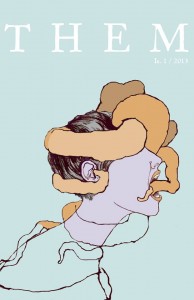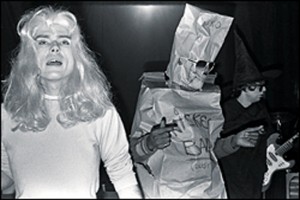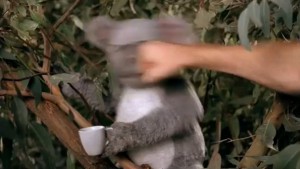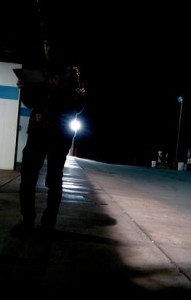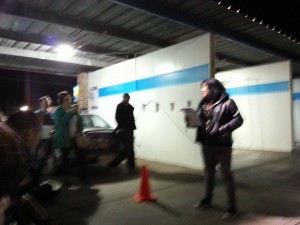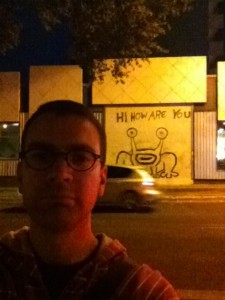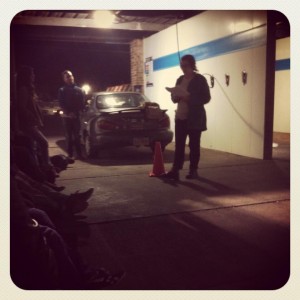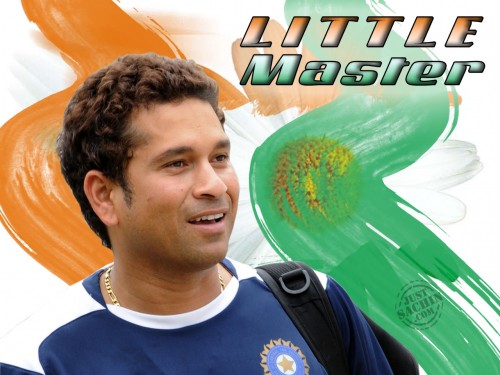A Sloth’s Perspective
Beach Sloth, cult blogger-extraordinaire, is arguably one of the few things you should actually pay attention to on the Internet. A magnificent poet and semi-anonymous (though some know his secret identity), Beach Sloth is the spirit of discovering new art—plucking it from the depths of the Internet and hidden crevices of the unknown in effort to make us aware. The style of his reviews are poetically analytic and hit off on major points of each work he’s featuring. He covers a wide variety of literature, art, film, music, online activity of Internet poets, and other mediums that peak his interest. Beach Sloth wants to make his art into a money making enterprise. He wants to extend his three fingered claws and touch everyone with his work and insight. You can paypal him at: pleasepaybeachsloth@gmail.com. He tweets at @Beach_Sloth. He also allows you to advertise on his blog. (There’s nothing this sloth can’t do.)
I interviewed Beach Sloth over a course of a week through email about his project, the artistic “struggle”, and his views on indie lit. Being a prominent player in the “alt lit” scene, the blogger’s responses were eye opening and unique to his own. So kick back, relax, and enjoy this sloth’s perspective.

What is Beach Sloth? Why was this alias created? What is your slothy purpose?
Beach Sloth is my way of interpreting the culture I see created online every single day.
I created Beach Sloth after a series of really strange events began to happen in my life. None of them were bad but I was feeling a little bit too comfortable with the daily routines I was going through. Hence Beach Sloth kind of served as a challenge to me to engage more with the world (and Beach Sloth as a project continues to challenge me with a near-endless stream of work).
My purpose is to support others and have others support each other. If that happens I am happy.
How satisfied are you with your work thus far? What would make it better? What would make it worse?
I am pretty happy with my work thus far. I think I am moving in the right direction and I am constantly trying to improve what I do. Some of the work I did in the past seems a bit ‘underdone’ compared to what I do now, in that I am a lot more focused on keeping things concise and edit a lot harder.
My work probably would be better if I ventured outside of my immediate social media realm. One of my goals for Beach Sloth in 2014 is to try and expand my horizons outside of the blog. This has meant a chapbook for Peanut Gallery Press, more submissions elsewhere (I’m bad with submissions in general) and trying to move into more visual work (I want to do a better job of taking advantage of Tumblr’s focus on the visual, something I know I haven’t done enough of in the past).
Honestly I am pretty hard pressed to think what would make it worse. Probably the worst thing I could do would be to sort of shut off Beach Sloth to a few specific writers. I try to keep up a variety of coverage so people do not see the same names all the time. My focus is also on those whose work I particularly enjoy and people who I think deserve more credit. READ MORE >
Alt Lit Diaspora: looking from the outside in with Luis Silva
Luis Silva runs Electric Cereal, a literary site dedicated to sharing the work of new and exciting voices. I like talking to Luis on facebook because we are facebook friends and we both consider ourselves outsiders in the lit scene (which we are totally okay with and even proud of). Like someone said on House M.D., I think it was Omar Epps’ character, “You can see a lot more when you’re on the outside looking in.” I’m unsuccessfully trying to find the exact quote on the House M.D wiki, but I can swear someone said something like that while I was binge-watching on Netflix.
Anyway, I sat down in my bedroom the other night and messaged Luis some questions about alt lit and we had a pretty lengthy and somewhat controversial conversation about the community. Keep reading.
Alexandra Naughton: What is alt lit? What does it mean to you?
5 Points: Boo, The Life of The World’s Cutest Dog
1) The first thing that blew me away when I returned home from Brooklyn and greedily opened my Boo (which was waiting for me along side biographies of Shakespeare and Jonson) was the sheer Whitmanesque charisma and scintillation of it all: the big-heated spirit, the boundless energy , the Joie-De-Vivre. And yet, also, I was amazed by a stealthy and shrewd persona. A veritable host of personas! But, all in all, loveable. Absolutely loveable.
I had to rub my eyes once or twice, I admit, and scratch my ass, pensively, and then return to the bounties of the book to see if it was all for real. I mean, how could it be ?? … But, Yes! Yes! Yes! … Look, for example, at how Whitman’s “I lean and loaf at my ease” translates, and upgrades even, so seamlessly, to Boo’s elegant and contemporary “I like to lounge around the house.”
And, delightfully, also, there is something tremendously naughty in the way Boo enchants us with his insouciance. His lazy wisdom. His casual control of self and universe. It is indeed impressive. And quite enchanting. Intoxicating. And heady…..Yes, folks hungry for the “real deal”, Boo is here. And he is a game changer. One for the cannon. Or one, really, round which the cannon rebuilds and redefines itself.
2) The most important question the serious student or master of literature must ask when measuring a candidate up against Walt Whitman, the Titan and father of American Literature, is “Does the subject contains multitudes??”
And indeed Boo proves over and over to be multitudinous READ MORE >
May 15th, 2014 / 9:00 am
Get Ready for THEM: Stephen Michael McDowell Reports on Jos Charles’s New Magazine
When a new literary arts magazine comes along, it’s always a reason to celebrate. Jos Charles, Emerson Whitney, and Jamila Cornick have put together a critically ambivalent, aesthetically smart online magazine THEM (soon to be in print) that promotes the *trans values in us all, and it is awesome.
Stephen Michael McDowell, a writer loosely associated with the Alt Lit scene (as is Jos Charles), gives a 25-point report on Jos Charles’s new project THEM, Issue One, which was published online today (link provided below):
1. I have a very low tolerance for cold, and often cite any setting below 75 degrees Fahrenheit as potential “jacket weather”.
2. Despite widespread public knowledge of racially polar male and female authors and poets [something about me not being able to think of any openly queer or racially unspecific authors and poets, especially given] my experience.
3. Something about how modern dress does not preclude a person from being a person but can prevent a person from being informed of different genitals which can prevent a person being aware that different genitals exist.
4. Focusing on queer or trans* identity as a central theme in literature vs. focusing on economics as a central theme in literature vs. focusing on writing about writing as a central theme in literature vs. focusing on nothing in general as a central theme in literature.
5. In THEM Issue One the assigned gender of each contributor in this journal is shrouded in a way that, regardless of the piece’s overall focus, seems to render every character, voice, feeling, and basis for confusion “human” in a way that I like.
6. I developed pneumonia the week my junior high school P.E. class started practicing lacrosse. I was relieved I wouldn’t have to compete against people in lacrosse, but practiced at home in my bedroom because I liked the mechanics of the instruments that were used in the game. I felt profound disappointment when I got back two weeks later and they had moved on to volleyball.
7. In a climate where terms like “Experimental” and “Standard Procedure” seem wildly vague and frequently interchangeable it seems like enthusiasm and maybe “Recognizably Subversive” work are what readers’ readers are looking for to share with there friends. In this search, almost as if by accident, the still peripheral outpourings of the disenfranchised but not unfamiliar seem to easily go overlooked. I don’t know why this is, maybe something about quality, maybe something about affect and guilt, but this collection touches on a lot of subjects without intentionally straying from the easy-to-parse, which I think may give this publication a chance in the realm of alternative/internet literature at least.
8. I feel rigidly aware I’m writing in a mode I’m uncomfortable with because it seems like people are more receptive when I write this way.
9. This is a large collection (~100 pages of text). If I were approached and asked by a friend which pieces of this they should read, I would reluctantly point out one co-authored by a writer I’ve published, maybe three or four more besides, but the experience of reading this collection dans complètement left me on the brink of tears in a sort of dizzying empathy. So maybe just read all of it.
10.
““Trans*” is an umbrella term meant to include not just transgender identities, but any person who does not exclusively identify as the gender assigned at their birth. This often includes genderqueer, bigender, agender, genderfuck, and other gender-variant identities. Like with any umbrella term, the only way to know if “trans*” applies to someone is if they apply it to themselves.
THEM uses the word “trans*” in an attempt to make room in the old, reconcile, carve, and begin from where we can. That is to say “trans*” is not perfect and without limits; THEM adopts it as a strategy—contingently and consciously. If a more suitable term, less grounded in binarist western identity-politics emerges, THEM will be happy to abandon “trans*” and utilize another.
THEM is not the gender police. Authors and artists herein may not identify with “trans*” as a term, i.e. folks with cultural gender identities who reject its use. Likewise not all writing herein may be considered “trans* writing.” THEM is willingly confused by what does or doesn’t pass as trans* writing. THEM is critically ambivalent. THEM is happy to present conflicting manifestos.”
Seems sweet.
11. In my immediate family there is a constant struggle to reconcile racial and gender identity. One of my siblings has been in a long-term relationship with someone outside our family’s designated race and has seemed openly conscious of and tormented by this, despite the degree to which they seem compatible. Another sibling is in a “homosexual relationship” and hasn’t told our extended family, though they never attend family events without their partner. After nearly a decade of engaging exclusively in relationships with people of one racial designation, I recently started seeing people in other races and with non-conforming gender identities and have felt less confused by my impulses and more aware of what other people consider when looking for partners, and have felt the experience to be constantly epiphanic. Reading this journal has enhanced that feeling of epiphany for me, I feel.
12. Something I thought upon initially embarking on reading “THEM” was that the formatting and layout seemed lit-journal-typical in a way that made me uncomfortable. The discomfort, I realized, was grounded in my own tendency to try to design things contrary to how culturally normative magazines and journals have appeared in my experience. After thinking more about this, I realized the editors may have been trying to make the journal seem attractive to a wider audience than people who, in my mind, stereotypically fit into a “punk” aesthetic, due to that subculture appearing more welcoming to openly trans* people. I’m not sure what it is that I intuitively generalized but I don’t like it and think #10 renders it in a much higher resolution than my brain is willing to parse.
13. I’ve never had gay sex, whatever that means. Maybe I have. Whoa.
14. I didn’t know there was a trans flag. Now I do. http://castrobiscuit.com/wp-content/uploads/2012/10/trans-pride-flag.gif
15. Having a very difficult time coming up with 25 points. Earnestly considering flaking on all y’all tbqh.
16. Thought “LGTBQH” and kind of twisted my spine in an attempt to express a seemingly nondescript, possibly never before previously experienced emotion I could attempt to convey as “weakly entertained in a self-loathing humorous manner while very aware of growing feeling of hunger and mild pain in the testicles.”

Writer Reba Overkill does not live up to their name in THEM, Issue One, instead they straight up kill it.
17. I feel aversion, generally to political activism. To some degree, I embarked on a career in literature because novels and poems have the ability to transcend—or, more accurately, in my view, diverge from—approaching politically controversial topics and unite people. It seems sweet to me that there are authors and poets spending their time writing from politically aware standpoints, but with less an “agenda” than to express and explore, in a way that’s non-standard with regard to what, in my view, is typically viewed as “literature”
18. “Satyricon (or Satyrica) is a Latin work of fiction in a mixture of prose and poetry (prosimetrum). It is believed to have been written by Gaius Petronius, though the manuscript tradition identifies the author as a certain Titus Petronius. As with the Metamorphoses of Apuleius, classical scholars often describe it as a “Roman novel”, without necessarily implying continuity with the modern literary form.
“The surviving portions of the text detail the misadventures of the narrator, Encolpius, and his lover, a handsome sixteen-year-old boy named Giton. Throughout the novel, Encolpius has a hard time keeping his lover faithful to him as he is constantly being enticed away by others. Encolpius’s friend Ascyltus (who seems to have previously been in a relationship with Encolpius) is another major character.
“It is one of the two most extensive witnesses to the Roman novel, the only other being fully extant Metamorphoses of Apuleius, which is quite different in style and plot. Satyricon is also extremely important evidence for the reconstruction of what everyday life must have been like for the lower classes during the early Roman Empire.”
—Wikipedia
I found this article about three years ago when google searching “first novel”. [Something about it having been published in the first century A.D.] [Something about 2,000 years passing since its first publication] [Something about high-profile LGBTQ public figures gaining mainstream popularity on television and the internet]
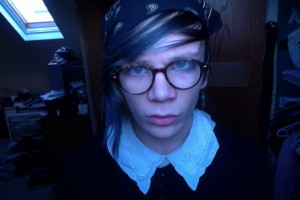
Codi Suzanne Oliver, whose writing is also included in the first issue of THEM, is another reason why THEM’s editorial staff should include contributors’ phone numbers.
19. I have a friend who dated a trans woman and stayed friends with her after they broke up. My friend told me that her friend began a long-term relationship with a man and still hasn’t told him she was once designated a boy because it just never came up in conversation.
20. This couple: http://www.dailymail.co.uk/news/article-2374296/Transgender-teen-lovebirds-pose-swimsuit-shoot-having-gender-reassignment-surgery.html
21. Have, over the course of writing this, returned to the idea of “us vs. them” but haven’t yet come to any conclusions about it.
22. I’ve felt consistently averse to the idea of trying to “sell” this journal. I was asked to write this and am writing it because I was asked to and felt interested in writing something that would appear on HTMLGiant and would promote a more diverse range of potential for writing, in general.
23. I feel shitty for making this “meta” instead of feeling as though I was capable of coherently summarizing my thoughts, strictly, on the journal itself.
24. I think viewing this collection not as “queer/trans* literature” but as “literature” will be the most beneficial way of perceiving it, if the reader is capable of dissociating from the intention of the publication.
25. Thank you for reading this.
You may read THEM, Issue One, free and online here: http://issuu.com/themlit/docs/them_draft_1.docx
December 13th, 2013 / 8:00 pm
….Why Do You Treat Alt Lit (Steve Roggenbuck in particular) with such scorn?…(Ask The Oracle – Part I)….
***
I tend to get lost in the trees so I like to check in with Jereme Dean because well I think of Jereme as a wise man, an oracle, a modern day version of Ikkyū the 15th century Zen Master:
they used sticks and yells and other tricks those fakes
Ikkyū reaches high low like sunlight
Jereme, furthermore, sits outside of writing movements, fashion, allegiances, etc, and there is an authority and a confidence to Jereme that I really respond to:
I live in a shack on the edge of whorehouse row
me autumn a single candle
And because Jereme will tell it you straight, a true oracle, I’ve decided to start up this new feature, “Ask the Oracle,” where, periodically, I’m going to put crucial questions to our modern-day Ikkyū.
***
and so, here then, now, is the first installment of “Ask the Oracle”:
***
Rauan: I’ve seen you poke fun at (or be scornful of, i guess) “Alt Lit” and, specifically, i think, Steve Roggenbuck. But are you really against these positive, energetic DIY youngsters? (& plz elaborate)
Jereme: Alt Lit has nothing to do with online writing, really. It’s a clique. Some have tried desperately to associate writing with the term, like people who feel their worthwhileness is minor and desire to be part of a movement–something remarkable!–or publishers looking to categorize their books for sale. But, don’t be fooled, alt lit is to writing like a cafeteria is to school education.
Internet literature isn’t new. There are plenty of people who’ve been around before the term was coined, and still are around, writing: Blake Butler, Sam Pink, Tao Lin, Daniel Bailey, Mike Young, Jimmy Chen, Brandon Scott Gorrell, etc.
True positivity is anchored and unafraid of negativity, it actually welcomes it. While asserting yourself as a Haitian mongoose, regardless of emphaticism, doesn’t negate being a human being who hates himself/herself.
Unsure where the idea of ‘positivity’ comes from though. I don’t see it. Feel like most people online make great efforts creating a fictitious identity, one which counters their insecurities, and the only way to actually believe the fantasy is to be chill/stay positive/chant affirmations. Because of this, the dissenting voice seems to be enemy number one to alt lit. They react ferociously READ MORE >
December 3rd, 2013 / 8:45 pm
No Thanks: A Simple Wish for the Ends of Alt Lit
Last week I watched Nathan Staplegun eat salted peanuts on spreecast. What started off as Nathan eating salted peanuts soon turned into Nathan asking his roommates or friends (and thus turning the computer camera in their direction) what they were preparing in the kitchen, and quickly became a spreecast showing one of Nathan’s online friends playing guitar. On the surface, Nathan Staplegun eating salted peanuts on television (that’s what platforms such as spreecast are: do-it-yourself TV) would seem like a snooze, a no-brainer, an excuse to read more books. But, what Nathan did was really great. He put on TV a thing that he would have done anyway and by doing it on TV turned the act of eating salted peanuts into something else: an event, perhaps.
I love to tell the story of Glenn O’Brien’s TV Party. In 1978, Glenn O’Brien and friends (and his friends were people like Jean-Michel Basquiat, Amos Poe, Deborah Harry, Walter Steding, Chris Stein) got together and decided to take advantage of public access cable television in New York City. The format was simple: hang out with friends, get high (one episode had Fab Five Freddy in costume teaching viewers how to roll perfect joints), have your friends play music, and talk to people (viewers called in live while the show was on air and used their short time to make death threats and complain about how shitty the show was). By television’s standards, the TV Party shows were shitty, but they were fun to watch. And, in their own way, became increasingly popular (special guests included David Byrne, Klaus Nomi, and Mick Jones of The Clash) and influential (in one of his early top ten lists David Letterman cited TV Party as an influence). Art and everyday life will never be separate things; although, the art marketers sure seem to want us to believe that they are. Friends get together, record each other doing silly things, or someone we hardly know broadcasts himself washing dishes or whatever, and art’s possibility is renewed, if not, realized.
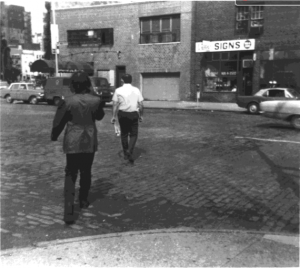
The word ‘creepy’ has not always had negative connotations. Vito Acconci follows people around New York City as part of his month-long performance ‘Following Piece’.
I have been kicking around the idea of starting a series of posts in which I cruise my facebook friends’ facebook photos and post the ones I like as part of ‘Creeper: Favorite Facebook Photos of My Facebook Friends’. The word ‘creep’ (and its variations) has not always had negative connotations. When Radiohead hit the pop charts in 1992 with their debut single “Creep” the song seemed like a strange, wonderful call to embrace the pathos of a loser, a lost subcultural weirdo whose dreams and desires are too much for himself and the world. Much like Beck’s “Loser” the song seemed to reinvigorate a long-standing yet dangerous tradition in the arts: the elevation of the low, the loser, the outsider, the emotional clown, to the status of cultural barometer, of artist. Long-standing because American cultural producers had carefully exploited this type for profit since the early days of white rock ‘n’ roll (Elvis Presley) and the first teen films (Rebel Without A Cause). Dangerous because sometimes people actually believed in these characterizations enough to begin to act like rebels, not satisfied with merely listening to them on the radio or watching them at the movies.
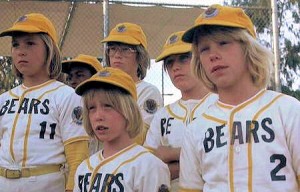
It’s not Dennis Cooper’s male escorts of the month. It’s The Bad News Bears (1976), who demonstrated that life sometimes artfully happens when a bunch of losers get together and push the game to its limits.
In 1969, Vito Acconci made art by simply following people around New York City. Acconci spotted someone on the street and followed them until they disappeared into a place he couldn’t, or didn’t, want to go. Acconci’s performance lasted almost a month. He’d get up, go outside, spot someone, and follow. Most spreecasts, for better or for worse, go on way too long. But, so does hanging out with one’s friends. At some point, you want to be by yourself or hang out with someone else. With the advent of the spreecast you can hang out with people you know or don’t know or want to know simply by joining in. It’s the logic of the club but not as restrictive. Of course, hanging out on spreecasts may never beat the intimacy of being in the same room with a friend or a loved one or turning it all off and reading a book. But I’ve known a lot of people who got all the companionship they needed by simply watching episodes of Breaking Bad or whatever–and apparently, according to some, you can be plugged in and still experience solitude.
This isn’t a plug for spreecast, who I could give two fucks about. It is a plug for a kind of art that denies the art market and realizes itself in everyday life. One doesn’t need an important architectural group, a big publisher, and a major museum to support an effort to follow and document people in your neighbor (although Acconci had all of those). One does need ideas. I was talking to Elizabeth Emily D’Agostino in her car about art. We were parked outside my apartment–a perfect venue to discuss anything. Our conversation shifted to cultural amnesia, an easy target. In our desperate efforts to predict the future I described for her a story written by Tao Lin and boldly proclaimed that this was Lin’s crowning moment and that history would look at this moment as an opportunity lost. The story is simple enough:
when i was five
i went fishing with my family
my dad caught a turtle
my mom caught a snapper
my brother caught a crab
i caught a whale
that night we ate crab
the next night we ate turtle
the next night we ate snapper
the next night we ate whale [. . .]
The last line of the story is repeated almost endlessly or as long as the writer/reader can endure it. Although, I have read a version of it where it ends rather abruptly. For a video account of its hilarity, you can listen to Tao read it here.
Why an opportunity lost? Because when an artist with the talent of Tao Lin comes along he seems to come with a two-pronged fork capable of reflecting the zeigeist back to us and/or breaking the hold the zeigeist has on our attitudes, desires, fashions, discourses, etc. In the post-Warholian world in which we live contemporary artists have made it clear that they are more interested in and perhaps more capable of showing us who they are (i.e. reflecting the ‘zeigeist’ back to us) than breaking the mirrors that bind us to a social-medial and political-economic worldview that reinforces the notion that ‘we’re fucked.’
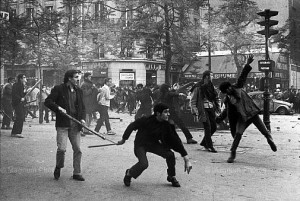
May 1968, France. Today, the attitudes and aspirations of the ‘me generation’ of the 1970s have resurfaced in the attitudes and aspirations of millennial artists.
We are fucked. In Sheila Heti’s novel, How Should a Person Be?, someone comes up with an idea for an ugly painting competition. I say ‘someone’ because not even Sheila, our narrator, knows who came up with the idea. The idea of making the ugliest painting is more difficult than you’d think. Relationships are ended, lives are changed. During the height of the national crisis that was punk rock in England in the 1970s, a roadie for The Who dismissed the movement as a mere ‘revolt of the uglies.’ I mean, imagine calling a bunch of teenagers parading their misfortunes, economic hardships, childhood traumas, bad skin, social awkwardnesses, and fashion made of actual garbage found in the street as revolting or, worse, ugly? It is with these two sentiments in mind–a conceptual call to ugliness in the name of something else (Heti) and its celebration as an insult (punks)–that I invoke the writers and artists of the alt lit movement, a movement that has come to signify everything that’s right and wrong about everything that’s fast, cheap, and out-of-control in the arts today. Perhaps the time has come to break the mirrors that bind us to our own little personal victories (i.e. ‘I’m internet famous’) and begin the more fun and difficult work of smashing those fucking mirrors so that we–and the big, bad world–may see ourselves again, as something else, something more, something seemingly uglier and thus, perhaps, more beautiful. Of course, you could choose to ignore me (I’m used to it, really)–your career path probably profiting more from it–than listen to me whisper to you, from the salted peanut gallery.
@janeysmithkills
kottonkandyklouds.tumblr.com
Making the Scene: Michael Davidson Reports from a Car Wash in Austin
Poetry readings suck. They are exercises in the worst kind of narcissism: the narcissism of a bad actor. There is nothing worse than having to endure two hours of bullshit from people you don’t even like. If you attend poetry readings regularly, then you are probably a wanna-be poet. And if you behave yourself at such readings, then you are definitely a loser. If you want to get a poet’s attention, here’s a simple formula: attend a poetry reading, politely approach a poet, punch the poet in the mouth. Not only will you get the poet’s attention, you will have accomplished something that not even the poet you’ve come to see could have accomplished: the creation of an almost pure act of poetry.
Of course, you could also stay home and write poems. But that would require you to be comfortable with long periods of loneliness, anxiety associated with the feeling of missing something, and mostly heart-breakingly intense bouts of solitude. For those of you who can’t bear the responsibility of becoming a poet, you can continue to attend poetry readings and, after you leave, perform the ritual of bitching and complaining about how shitty they are–and how awful so-and-so’s stuff is–as you drive/are driven to the nearest Taco Bell or whatever.
I attend poetry readings very infrequently. And when I do I do it for two reasons: one, I have convinced myself beforehand that I will learn something about writing poetry (by attending and actually listening to the poets read stuff at the reading), and two, I believe I will discover something about the mystery of existence (I know, stupid romantic). Simply put: people, signs, architecture–lots of things–intrigue me. Especially super fucking weirdo, but seemingly simple, things. Like the poetry reading that took place in a car wash in Austin, Texas, last week. Below, I provide you with a scintilla of evidence that poetry readings don’t have to suck, that somewhere in the world poetry people are trying to do it right, attempting to make–in their very own uniquely foolhardy way–a little miracle (which, by the way, I have always associated with crime).
Michael Davidson (aka herocious) reports from Austin on the Sad Sad Sad Fest: A Car Wash Reading (first posted by Michael on Alt Lit Gossip):
“I tweet: I’m reading a tiny story aloud today at a car wash on MLK and Airport in Austin. Come say hi at 7pm :) I don’t tell anyone I work with about the event, not even to make small talk in the copy room.”
“At home I practice reading aloud the story I plan on sharing at the event. I delete words I don’t like, then I delete entire sentences I don’t like.”
“We discuss a meeting place. We decide on 21st and Guadalupe, the same corner with the Daniel Johnston alien frog.”
“Alicia Fyne, the event organizer, is in her car in the far left bay, just like she said she would be. There are people packed into her car.”
“We meet Alicia Fyne, Andrew Hilbert, Joseph Green, Cheryl Couture, No Glykon. There is beer. There are flasks of whiskey. In other bays at the car wash, people are washing their cars. A friend shows up: David Nguyen. Other people enter the far left bay, lean against the tiled walls, introduce themselves. It’s fun. No one gives a shit.”
“To hold a reading where you least expect it. To hold a reading where it doesn’t fit in. Behind me I hear people ordering from Popeye’s.”
The Sad Sad Sad Fest was the name given to Alicia Fyne’s monthly readings series wait . . . what? The writers reading at Sad Sad Sad Fest on November 7, 2013: Michael Davidson, Cheryl Couture, Andrew Hilbert, No Glykon, Joseph Green, and Alicia Fyne.
Note: This post will be part of a series called, “Making the Scene”. The series seeks to report on readings that happen in your neighborhood. If you’ve got something to report, hit me up.
twitter: @janeysmithkills tumblr: kottonkandyklouds.tumblr.com
………Alt Lit set for Huge International BOOST……..
1) When Sachin Tendulkar, famous cricketer, walked back off the Wankhede field in Mumbai after having accumulated nearly 16,000 Test Runs in exactly 24 years at the highest international level (a career surpassed in excellence only, perhaps, by Sir Donald Bradman) he proclaimed “I am ready to die a violent death.”
Yes, it seems the world’s most famous cricketer (a virtual God in India and the rest of the subcontinent) is headed for new glories, laurels and great, foaming spikes of URL fame in the crazy, wide-open world of Alt Lit.
2) “Yes,” Sachin continued, “I plan on running amuck in the woods muttering glorious Carpe Diem extravagances”— whereupon Steve Roggenbuck leaped out of the Wankhede stands and hoisted Sachin up on to his shoulders and started chanting “Boost! Boost! Boost!” and the whole crowd, 40,000 strong, joined in immediately, voraciously chanting “Boost, Sachin, Boost” and Eternal Lief seemed all-too possible. Beautiful. Exquisite. Here. Now. Now.
3) “Will you be going to Brooklyn?” READ MORE >
– – watch this imagining it’s Janey Smith!!
– – watch this imagining it’s Johannes Göransson!!
– – watch this imagining it’s Alt Lit in toto!!
(just kidding… just kidding)
over at her Tumblr Thais Benoit, answering a call from Alt Lit Press, offers up a kind of manifesto of thoughts about and definitions for Alt Lit:
“Writing that is happening outside of traditional publishing, mostly online and in digital forms.”
“Alt Lit fits in perfectly with historical literature context. Alt Lit is challenging the norms of the past, and can be compared/contrasted easily to the Beat movement of the 60s. We see authors using their lives as the set of their writing. Allen Ginsberg, Jack Kerouac did things (many of which seemed taboo or ‘wild’ or eccentric) and then wrote about them, and they wrote about them in a way that was real to their readers at the time. Please compare Taipei to On The Road: it’s fun.”
“More than anything else, Alt Lit fills a hole created by the commercial publishing industry. ”
“works by authors such as Jonathan Franzen and Zadie Smith, do not connect with many readers today. . .
WE DO NOT IDENTIFY.
WE DO NOT IDENTIFY.
WE DO NOT IDENTIFY.”
read Thais’ entire post here



